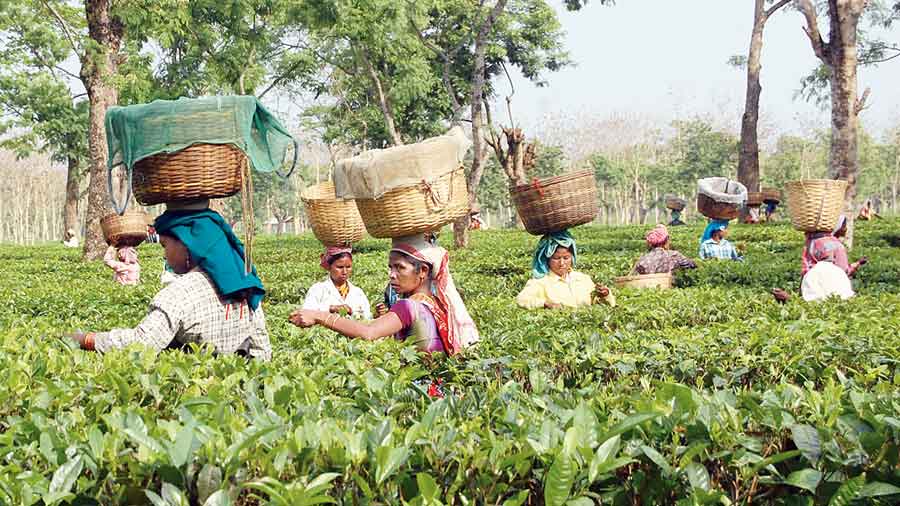Chief minister Mamata Banerjee’s public announcement to raise the daily wage of tea garden workers by 15 per cent at an interim basis has put the organised growers in a fix with the cost of production set to rise Rs 20 per kilo for majority of the Bengal gardens located in the Terai and Dooars regions.
The impact on Darjeeling tea estates, which are known for their low yield, is likely to be even higher. The inflated wage bill may raise cost by Rs 40-60 a kilo in a year marked by poor demand from the international buyers amidst falling prices.
Several garden owners and managers who spoke on the condition of anonymity said the wage bill spike would spell “disaster” for the industry.
Once implemented, the wages in Bengal would be higher than Assam, the other major producer in North India, even as the former picks up the tab for rations which works out to about Rs 14 a day per worker.
“We were bracing up for a staggered wage hike. Several rounds of negotiations have taken place over countless hours with the unions. We had agreed to raise it to Rs 220 a day. But now it seems that daily wage would go over Rs 230 a day. It is a disaster,” said an official of a tea producing company.
Sources said the owners were likely to seek an audience with chief minister Banerjee to plead their case for a staggered wage hike.
The daily wage for tea garden workers in Bengal now stands at Rs 202. A 15 per cent hike would take it to Rs 232 a day. Owners argued that the hike should be staggered over a period of two-three years, as it used to be in the past. This is the second time in less than two years the bill is going up.
Before the Assembly elections in the state, the daily wage of tea workers had gone up from Rs 176 a day to Rs 202.
The proposal has come at a time the industry is facing higher costs to the extent of Rs 10 per kg, especially on coal, which is used as the energy source to dry green leafs.
“If we consider the input cost push — coal prices have doubled in one year — the increase in cost of production will be Rs 30 for Dooars and Terai region and Rs 50-70 per kg for Darjeeling gardens. Only the top gardens making high quality tea can absorb such a hike,” said an owner.
The other question which is vexing the industry is when the hike would take place. Industry would hope that it kicks off from July onwards, even though unions may not accept it.











